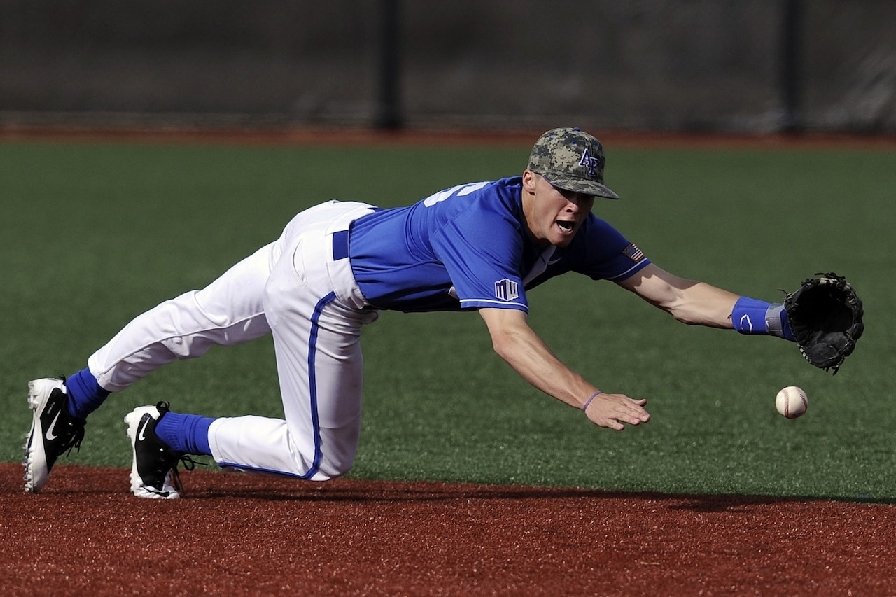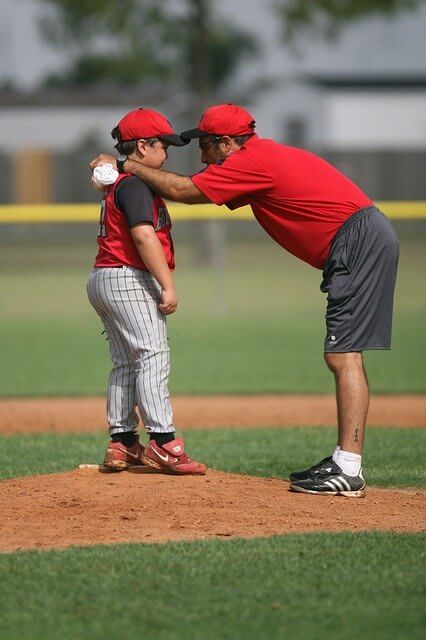If you follow Major League Baseball, then you must have heard of the term Designate for Assignment (DFA). When a player is DFA in baseball, various things can happen. Seeing this, you may ask, “what does designate for assignment mean?”
Designate for Assignment is a contractual term in MLB where the team removes the player from the active 40-man roster but still has the rights to the player. DFA puts the player on a waiver period where other teams can claim him.
But why does a team DFA a baseball player? What happens when a team designates a player for an assignment? Continue scrolling till the end as I answer all your questions regarding DFA in baseball.
DFA Meaning Baseball
DFA is a term in Major League Baseball (MLB), which is a short form of “Designate for Assignment”. It means removing a player from the active roster of the baseball team without immediately releasing the member.
Many people confuse releasing with DFA. But they are different things. When a team designates a player for assignment, it is setting aside the player, not completely releasing them from the team.
Reasons for Designating Players for Assignment
A team can designate a player due to various reasons. It can be for changing the game strategy and tactics or trying to strengthen the team.

Here are the most common reasons why a baseball designates a player for assignment:
- Performance issues: Performance reason is the primary reason for DFA. If a player fails to perform well and does not meet the team’s expectations, then the management may decide to DFA him and take someone else on the team.
The performance issues can be anything from struggling with batting to poor fielding or pitching and more. Even though the player is not performing well, the team may not want to leave the player completely. That is why they opt for DFA.
- Making room for new players: If the management finds an excellent performer outside the team, then they might decide to DFA an existing player. It will create room for the new player.
The new player may come from performing fantastically in the minor league. Plus, the management may also trade in new players from other teams.
- Creating balance in the team: Although the management plans well before listing their roster, they can still find an imbalance in the team. Besides, they may also want to switch players to change their game strategy.
In that case, designating a player for assignment from the team can be the best solution. It will allow the team to bring in a new player with the required skill to create balance in the baseball team.
- Trade options: Teams may also want to trade a player and that is why they do DFA. If the team directly releases the player, it will not give them any financial benefit. But they can DFA the player and look for trade opportunities.
If any other team is interested in the player, they may try to buy the designated player. In that case, the original team will get financial benefits from the trade.
- Injuries: Injuries can also be a reason for DFA. Athletes can get injured at any time while playing. If the injury lasts long, it can hurt the team as that member can not play for the team.
In that case, the team usually DFA the injured player. Then the team brings in fit baseball players to continue the campaign with a full active 40-man roster.
Designate for Assignment Process
Designate for Assignment in baseball is usually made by the team’s front office. It includes the coaching staff and general manager. They evaluate the player’s performance and the team’s need to make the call.
Once they make the decision, they will let the player and the MLB authority know about it. The team management will also inform the media about the decision to keep the fans updated and also let other teams know about player availability.
What Happens After Designation for Assignment?
When a player is designated for assignment, he enters the waiver period. It means the other baseball teams have the opportunity to claim the player. The waiver period usually lasts 7 days in MLB.
If another team claims the player during this waiver period, then they get all the rights to the player and can move him to their active roster. Such trading is common in other sports too.
In this scenario, the team who designated that player for assignment relinquishes all the rights of the player. Now, the new team will take care of the player’s contract and salary.

However, if no other team claims the player during the waiver period, he will be outright assigned to the minor leagues. It will happen when the player has minor league options remaining and is not claimed off waivers.
If the player is outrighted to the minor leagues, he will be removed from the MLB team’s 40-man roster. But he will remain with the organization and enjoy all the benefits.
Interestingly, the player has two choices here. He can either accept the outright assignment and play in the minor leagues or can ask for release and become a free agent.
Many players often are not interested in playing in the minor leagues. In that case, they ask for release after the DFA. Then he becomes a free agent, and any other MLB team can sign that player.
FAQs:
1. What is the difference between DFA and being released?
The main difference between DFA and being released is that the team retains the right to the player in DFA. But when the team releases a player in baseball, it terminates all the contracts between them, and the team holds no right to the player.
2. What is the difference between options and designated for assignment?
The main difference between options and designated for assignment is that the option allows the team to send the player to the minor leagues without putting him into the waiver period. That means no other team can claim the player.
3. Can a player refuse assignment after being designated for assignment?
No. A player usually does not hold the right to refuse a designate for assignment. However, if he has been with MLB for over 3 years or has been outrighted previously, he can refuse the outright assignment.
4. Can a team designate a player for assignment multiple times?
Yes. A team can designate a player multiple times during their contract period. Whenever the team feels that the player is failing to meet the team’s expectations, they can DFA the player.
My Opinion on DFA
DFA in baseball can be tough for players. The miseries enhance when no other team shows interest in claiming or trading that player.
But it is good practice to get better team results in the MLB. The process allows the team to reorganize and improve their performance. Besides, it also allows the player to look for better opportunities in other teams.
For these reasons, I think DFA is a pretty good option for both the team and the player. It can benefit both parties.
Learn More
What Is A Breaking Ball?
What Is WAR (Wins Above Replacement) In Baseball
What Does Defect Mean In Baseball?
What Is The Dropped Third Strike Rule
What Is The Pennant In Baseball

Hello everyone. My name is Jason Butler, and I live in California, America. I was a professional AAA Minor League Baseball player. I lost my chance of playing MLB for injury issues, but I did not lose my love for baseball. I attended the coaching training program and am now working as a coach in a small school in San Diego.
I always love to share my experience and knowledge if that can help you. Play baseball, and stay fit.
